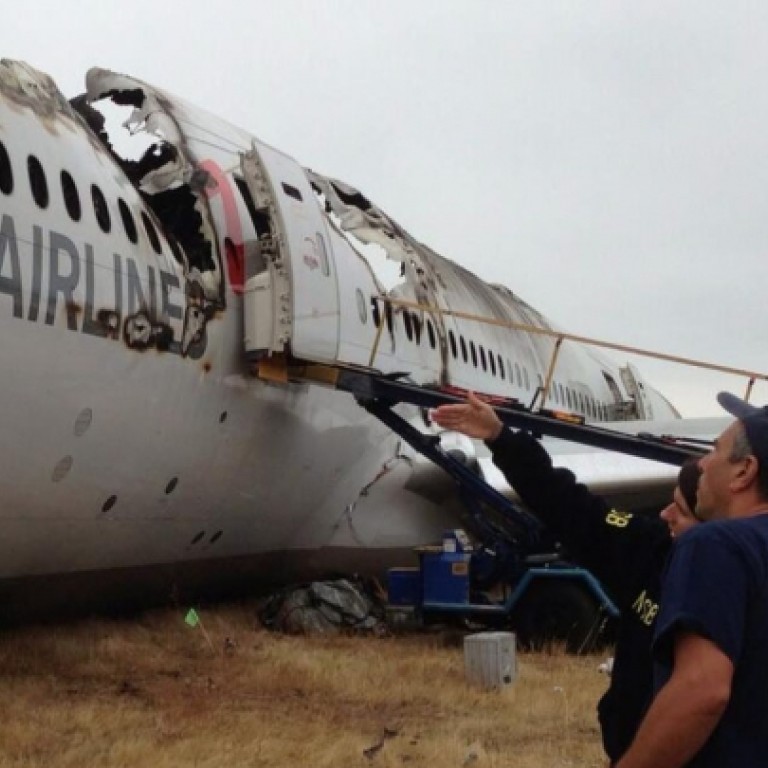
Despite tragedy, air travel still safe
An accident has occurred involving a type of aircraft some of us will be travelling on this very day and operated by an airline popular with Hong Kong people flying to South Korea and North America.
An accident has occurred involving a type of aircraft some of us will be travelling on this very day and operated by an airline popular with Hong Kong people flying to South Korea and North America. Two lives have been lost - young Chinese girls with bright futures - and scores more people have been injured, several seriously. Understandably, we want to know what happened to avoid a repeat. But we should not be impatient for answers or carelessly speculate; nor is there a need to delay, cancel or change travel plans.
That is because after an airline disaster, it takes a long time to say for certain what caused it. Some details of Saturday's crash of the South Korean Asiana Boeing 777 at San Francisco airport have been made public by officials, while a number of inaccuracies have been circulated in the media. Speculation is rife as to what caused the first fatal accident involving this aircraft type, and Asiana and Boeing are obviously eager to find out. But the US National Transportation Safety Board may take months or even years to complete its investigation.
Inquiries have to be thorough, no matter how straightforward events may seem. Sifting through the data and debris is a labour-intensive business and has to be so. Ensuring safety is the top-most concern of the aviation industry. That is why aircraft travel in most of the world is far less risky than any other form of transport. First-world commercial passenger jet accidents are so rare that they usually do not fit a particular pattern and turn out to be one-of-a-kind.
A tragedy has occurred and the circumstances are pitiful. Two promising lives have been taken and others have suffered grave injuries. We share the sorrow of the victims' families and friends. It is natural after such a calamity to think twice about plans, but the safety record of air travel and the determination of those involved to maintain high standards is reason to go ahead with arrangements. The nature of the highly competitive industry is such that when a problem with safety is found, correcting it becomes a priority.

